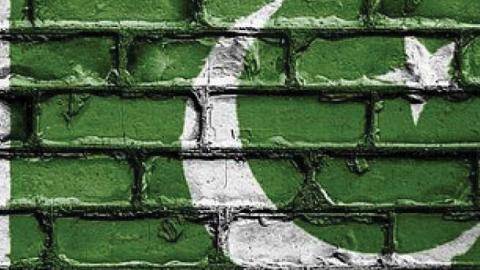Although Pakistani Foreign Minister Shah Mehmood Qureshi has assured his countrymen that Pakistan would soon get off the pre-sanctions watchlist of the U.N. money laundering and terror financing watchdog, it is unlikely that the international community will let Pakistan completely off the hook any time soon.
The United Nations Financial Action Task Force (FATF), is holding its virtual plenary on Wednesday and Thursday (October 21-22) and once again Pakistan’s case is likely to receive most attention.
Pakistan has, for years, not fulfilled the international organization’s standards against money laundering and has failed to shut down financing of terrorist groups operating on its soil.
But several countries have been reluctant to add Pakistan’s name to the FATF “blacklist,” which entails global economic sanctions currently imposed only on Iran and North Korea. Given the country’s poor track record in shutting down terrorist groups, Pakistan has been on FATF’s “grey list,” which has resulted in “enhanced monitoring” off and on for years.
The grey list is normally meant to force governments into tightening their legal regimes against money laundering and terrorist financing in order to get off it. But for Pakistan, it has become a way to indefinitely escape the blacklist. Avoiding the blacklist has become a goal in itself for Islamabad and after every FATF meeting that gives Pakistan a reprieve, its leaders celebrate the failure of its enemy, India, in securing the imposition of full sanctions.
The plenary that starts on Wednesday was originally scheduled for June, but the COVID-19 pandemic helped Pakistan get an additional four months to meet the U.N. task force’s requirements. Still, the FATF’s first follow-up report (FUR) on the mutual evaluation report (MER) about Pakistan suggests that the country has made little progress in creating an effective mechanism to end money laundering and combat terror financing.
The FATF made 40 recommendations for what Pakistan needed to do and Pakistan fully complied with two of them, up from compliance on one item a year ago. Pakistan was reported as being non-compliant in four areas, partially compliant on 25 counts, and largely compliant on nine recommendations.
Since June 2018, when Pakistan was last placed on the grey list, Pakistan has had the benefit of three extensions for complying with 27 points. In February 2020, FATF gave Pakistan a four-month grace period to complete implementation of its 27-point action plan against money laundering and terrorist financing. Then, Pakistan delivered on 14 points but missed 13 other targets.
Pakistan’s compliance is largely technical, coming in the form of legislation or modification of banking rules. But it has repeatedly missed deadlines for shutting down all access to funding of United Nations Security Council designated terrorist groups, especially those with close ties to the country’s security establishment. These include the Taliban, al-Qaida, Lashkar-e-Taiba and the Jaish-e-Mohammad.
Initiation of a few high profile cases, usually just ahead of FATF meetings, notwithstanding, Pakistan has shown no serious desire to prosecute the leaders of these groups for accessing finance or for actual acts of terrorism. Many of those designated as terrorists by the U.N. have gone through Pakistan’s revolving door.
One month before the FATF meeting, Pakistan announced the freezing of 964 properties of proscribed groups such as Jamaat-ud-Dawa (JuD) and Jaish-e-Mohammad (JeM) under the United Nations Security Council (Freezing and Seizure) Order, 2019.
In February an anti-terrorism court sentenced JuD chief Hafiz Muhammad Saeed to five-and-a-half years in prison in two cases after finding him guilty of terror financing and affiliation with an outlawed group. In August, three of his associates were sentenced to jail terms by a court in Lahore: Malik Zafar Iqbal and Abdul Salam Bhattvi to five years each in jail, and Abdul Rehman Makki to 18 months. All sentences are under appeal.
Also in August, the government tried to quickly pass the 2020 Anti-Money Laundering Act (AMLA) and Criminal Procedure Code (CrPC) Amendments but they failed to convince the parliamentary opposition, which blocked the move.
It is impossible for the international community not to notice how terrorist leaders are detained just in time to avoid international sanctions and released once the immediate threat of sanctions subsides. But Pakistan’s status as the world’s only Muslim nuclear weapons power and its strategic location, coupled with close ties with China and a past alliance with the United States, enable it to avoid punishments that other countries receive for similar actions.
Pakistan has so far successfully managed to avoid the blacklist due to diplomatic support from China, Turkey, Malaysia, Saudi Arabia and other Middle East countries. Avoiding the blacklist requires support of fewer countries, but support of 12 out of FATF’s 39 members is needed to exit the grey list. Difficulty in getting that level of support is the reason why Pakistan remains ever on the grey list even when it cannot be put on the blacklist.
Pakistan’s main international benefactor, China, is currently the chief of the Asia-Pacific group of FATF, something that helps Pakistan breathe easy. When China hosted the meeting of the international terror financing watchdog in Beijing in January 2020, its officials praised Pakistan’s “visible progress” in strengthening its counter terrorism financing system, and asked the world to encourage Pakistan.
For this week’s plenary, Pakistan is also hoping for concessions from the United States in return for Pakistan’s support for U.S. talks with the Afghan Taliban. But the best the U.S. can do for Pakistan is to keep it on the grey list again. It would be difficult for the U.S. and other Western governments to ignore the evidence about the continuing operation of jihadi groups in Pakistan.
Read in The Diplomat















